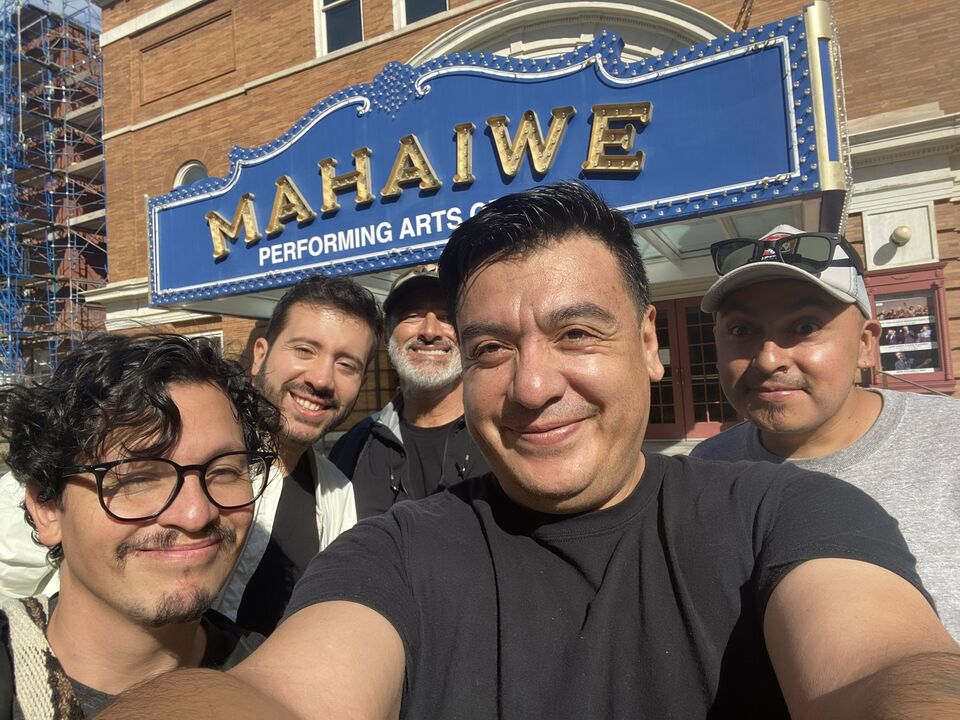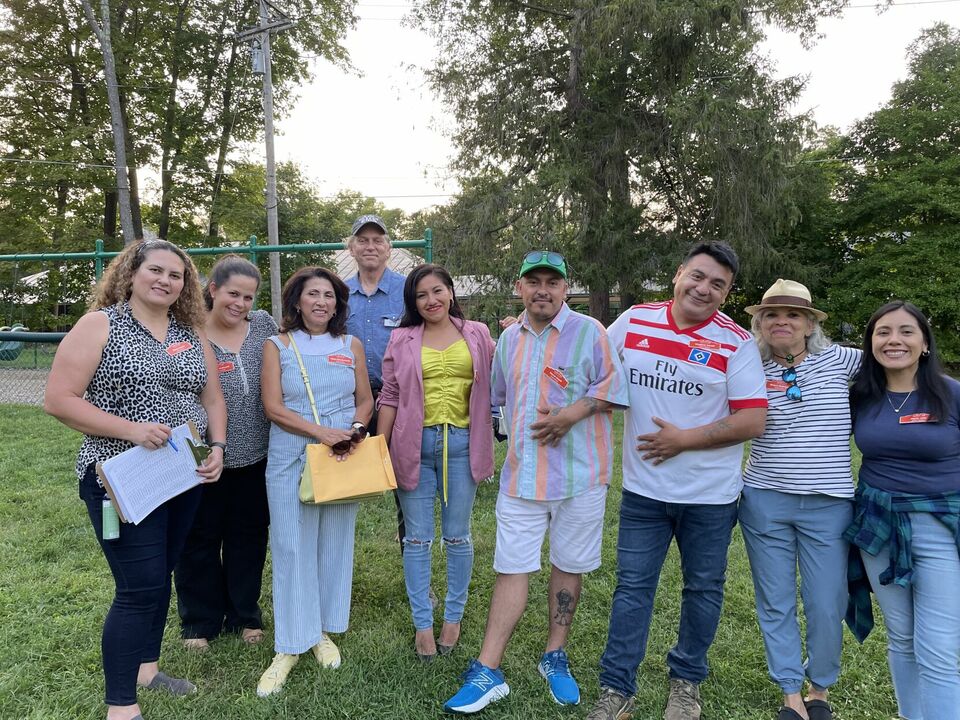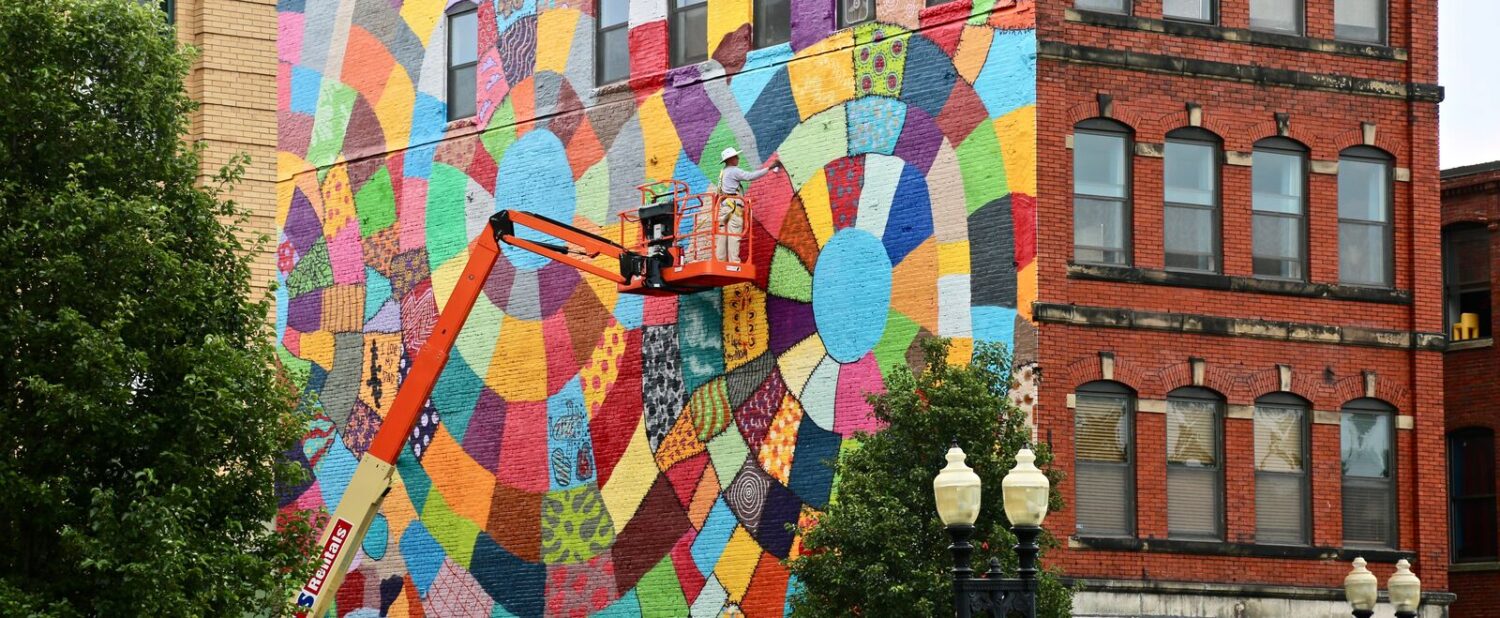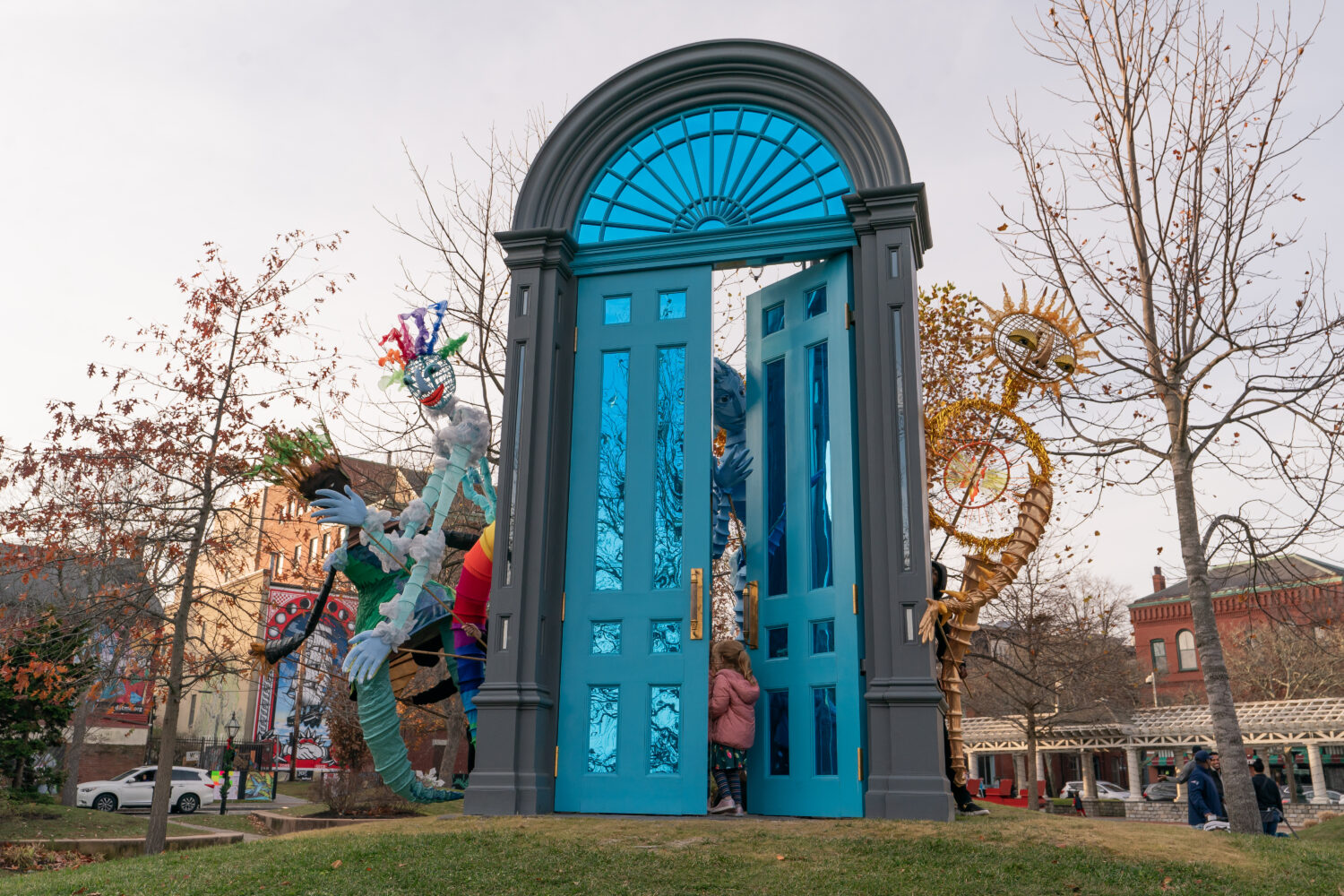A small-town performing arts center reaches out to a Spanish-speaking audience and builds community.
Written by Pamela Reynolds
It was a victorious moment. In 2021, the Mahaiwe Performing Arts Center in Great Barrington, MA, screened a Spanish-language film in its theatre for the first time. The Ecuadorian-Colombian romantic comedy Dedicada a mi Ex recounts the tale of an eccentric band of misfits competing in a music video contest. About 175 moviegoers crowded into the theatre, laughing uproariously as the ragtag, musically challenged characters stumble into an unlikely music career. But it was after the film was over that the real magic happened. Well-known Ecuadorean director Jorge Ulloa assumed the stage, flanked by several cast members, ready to answer questions.
“People just started laughing and clapping,” recalls Vladimir Soasti, who was instrumental in organizing the event. When it was over, delighted filmgoers asked him who would be coming next. “We had already created an expectation!” says Soasti.
Soasti belongs to the Mahaiwe’s Spanish-language Community Advisory Network or SCAN. His mission, and that of SCAN, is to assist the historic performance center to do something it had never successfully done before. The goal: reach beyond the theatre’s loyal but primarily Anglo audience to attract more patrons from Berkshire County’s sizeable Spanish-speaking population. Dedicada a mi Ex was the first attempt and, as it turns out, a huge success.
“What we look for is a great emotional experience,” says Soasti, a native Ecuadorean and an executive producer at the Soasti Bros. Production company in Pittsfield. He also sits on the Mahaiwe Board’s Education and Community Engagement Committee.
Since that first comedy almost three years ago, the Mahaiwe has made notable inroads into the Spanish-speaking community. The theatre now features two live Spanish-language performances each year.

Colombian singer Diana Burco, Afro-Cuban musician Pedrito Martínez, Cuban flamenco dancer Irene Rodríguez, and Chicago-based Latin American comedian Alfredo Campo are just a few entertainers who have mounted the Mahaiwe stage. The theatre also screens three Spanish-language films (or English-language films dubbed into Spanish) each year. Last year’s roster included a Spanish version of the Disney film Up, the Peruvian romantic comedy El gran León (which also incorporated a live Q and A session with the movie’s cast), and a screening of the Spanish-language MET Opera, Florencia en el Amazonas.
In 2023, the Mahaiwe hosted six Spanish-language programs attracting more than 1400 Spanish-speaking patrons. It was an impressive evolution from pre-pandemic times when the theatre was lucky to see just a handful of Latinos in the audience. To date, SCAN has helped bring in more than 2000 Spanish-speaking patrons.
“We have a great connection with people,” says Diana Lotero, who is part of SCAN and originally from Colombia. “Some people never knew of Great Barrington or the Mahaiwe. We invited them to events, shows, and movies, and we had to give them directions. But now, they come looking for us. They say, ‘Wow, that was a great show, and we want to come back again!’”
What accounts for the Mahaiwe’s big turnaround? Was it just an inevitable result of the demographic changes in Berkshire County in recent years? (According to the 2020 census, Hispanics comprise 5.5% of the population, although the actual count is likely much greater.) What kind of secret formula was the Mahaiwe able to use to grow its Spanish-speaking audience?
According to Janis Martinson, the Mahaiwe’s executive director, the big gains result from a sophisticated strategy built on what Martinson and her colleagues had discovered through community-based research. They learned that Spanish-speaking audiences need more than free tickets and transportation to draw them in. What also stands in the way for Spanish speakers (as well as low-income groups and people of color) are the cultural and psychological barriers.
So yes, while some in the Latino community might be concerned about the cost of tickets or lack of transportation to the theatre, others primarily don’t attend because they feel out of place.
“People were not finding out what was on offer because the information wasn’t coming to them through their networks,” explains Martinson. “And they were reluctant to show up because they didn’t know if they would be welcomed. They didn’t know if there would be people they knew or if they would be the only person coming from their group.”
Before SCAN was formed and the first Spanish-language film regaled audiences in 2021, the Mahaiwe, in 2019, began formally partnering with Volunteers in Medicine (VIM), a Berkshires nonprofit providing health care to people who are ineligible for insurance, many of whom are Latino or Hispanic. It was through the partnership with VIM that SCAN was born. Natalia DeRuzzio, patient services manager at VIM, had her finger on the pulse of the Latino community and a vast network through her job and was one of the first people the theatre turned to for help.
“It started very small,” says DeRuzzio. Initially, she states, she handed out just a handful of free tickets to VIM patients interested in attending a Mahaiwe performance. But in a short time, more and more patients began requesting tickets. The Mahaiwe began to strategize about a more coherent effort to earn the loyalty of a Spanish-speaking audience.
“And just as we were putting that together, Covid erupted,” says Martinson. “The plans that we had in place evaporated. So, we did a drive-in movie theater on a college campus for the summer of 2020. As part of the programming for that drive-in movie theater, we had free Spanish-language movies, and they were wildly popular. And so, we knew we were onto something.”
The Mahaiwe created its Spanish-language advisory group, co-chaired by DeRuzzio and the Mahaiwe’s Melissa Canavan. (Canavan, the theatre’s first Spanish-speaking employee, co-chaired SCAN for two years before leaving last summer to become the executive director of the Berkshire Immigrant Center.) Ultimately, the theatre recruited 14 members to join SCAN, with members hailing from a diverse group of Latin American countries, including Colombia, Ecuador, Argentina, Peru, Mexico, and Guatemala. But before SCAN members could buy into helping the theatre grow its Spanish-speaking audience, they wanted to know one thing.
“They wanted to know how long you are in this for?” says Martinson. She was reminded that trust would only be built through long-term commitment and a certain amount of power-sharing. “They challenged us right out of the gate to think more proactively about the programming that we were doing. We went from thinking they would advise us on how to get people in the door to having them advise us on the programming itself.”
The SCAN group got busy spreading the word about the Mahaiwe through various channels. Teachers publicized Mahaiwe events in their schools. DeRuzzio and a few others at VIM advertised events to patients. Lotero has a daughter involved in the arts and spread the word among fellow artists. Because of his work in film production, Soasti leaned on contacts in the entertainment industry to entice prominent Latin American directors to come to Great Barrington to talk about their work. Soasti says the group has worked hard to find family-friendly performers and movies from various Latin American countries with broad appeal. In addition, he keeps a close eye on acts and films that are, in his words, “quality.” Grants from the Berkshire Taconic Community Foundation, Arts Build Community Initiative, the Lee Bank Foundation, and the Charles H. Hall Foundation have made it all possible.

That’s not to say there haven’t been bumps along the way, especially, Martinson says, when it comes to her need to relinquish control of a busy performing arts center and trust her SCAN collaborators.
“It was sort of a revelation to be able to sit back and trust this group — because I had no choice,” she says. “I’m not fluent in Spanish. I had to think, they’re going to go out and advertise this. They are going to bring in the audience, and I’m going to have to trust that all of that is going to happen in appropriate ways. And they totally delivered on it. So, they learned to trust us, but equally, we learned to trust them.”
There were a few stumbles. Once during a performance, the theatre had too few Spanish speakers staffing concessions booths and was forced to extend an intermission to get everyone served. Martinson says she also learned that branching out to new audiences require more staff time than she had initially anticipated.
“Our communications needed not only to be translated but also to be more intensive, more frequent, and more personal than expected,” she says. “Food needed to be part of everything, which was a new and time-consuming idea. But the project also grew because the SCAN advisors were passionate about creating connections within their communities and had wonderful ideas to contribute that took time to execute. All of these were wonderful problems to have because they brought the project so much life.”

SCAN advised the Mahaiwe to make many fruitful changes. To begin with, SCAN knew best how and where to advertise events (in Spanish on Spanish-language radio, programs, and using their own video on social media) and what kind of changes would make shows more accessible (Spanish-language box office hours, a website translated into Spanish, and signage in the theatre in Spanish.) Flexible ticket pricing has helped, and SCAN members were also able to convince some local businesses to give their workers paid time off to attend theatre events.
“We’re trying to think about all the ways that we can make it welcoming and comfortable for people to be there,” says Martinson. The efforts seem to be paying off, and DeRuzzio has an idea why.
“When the community trusts you, the community responds,” she says.
Martinson adds that broadening the Mahaiwe’s audience has built an important sense of community connection that was once missing.
“When we have headliner shows from the Latinx world with performances in Spanish, people from the Latinx communities tell us all the time, ‘This makes us feel seen.’ It’s normal working in a performing arts center to have people excited and happy leaving the theatre, but having somebody say to you that they feel seen is a very moving statement, and that’s important.”



